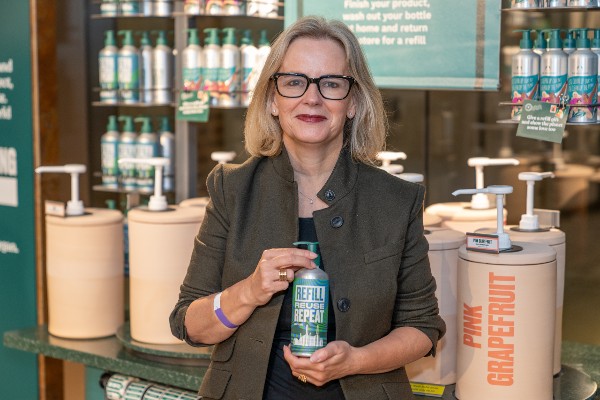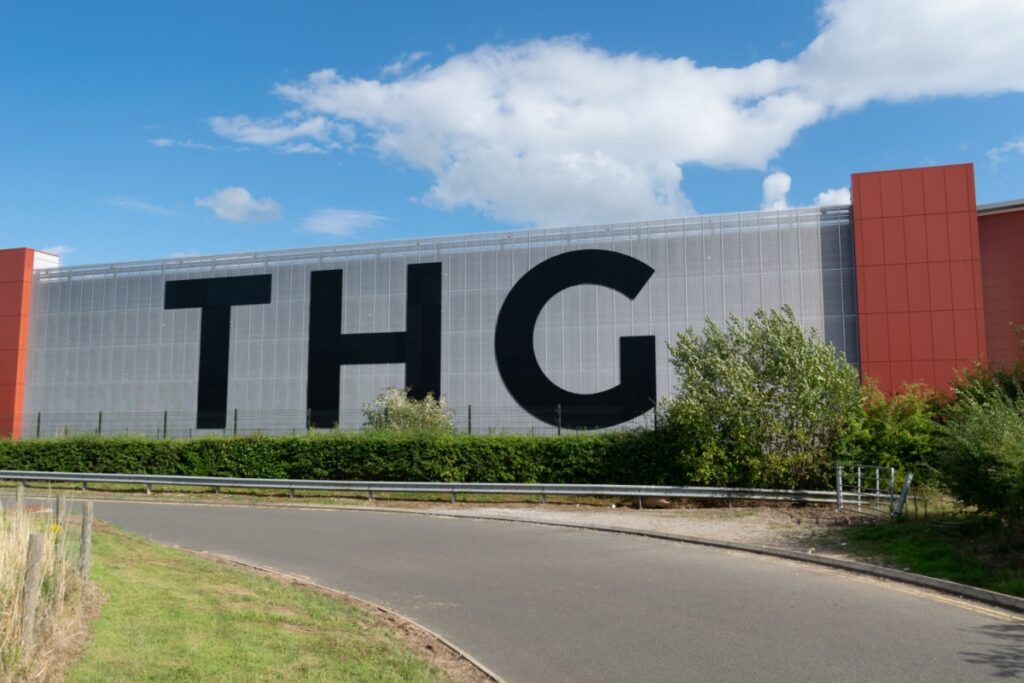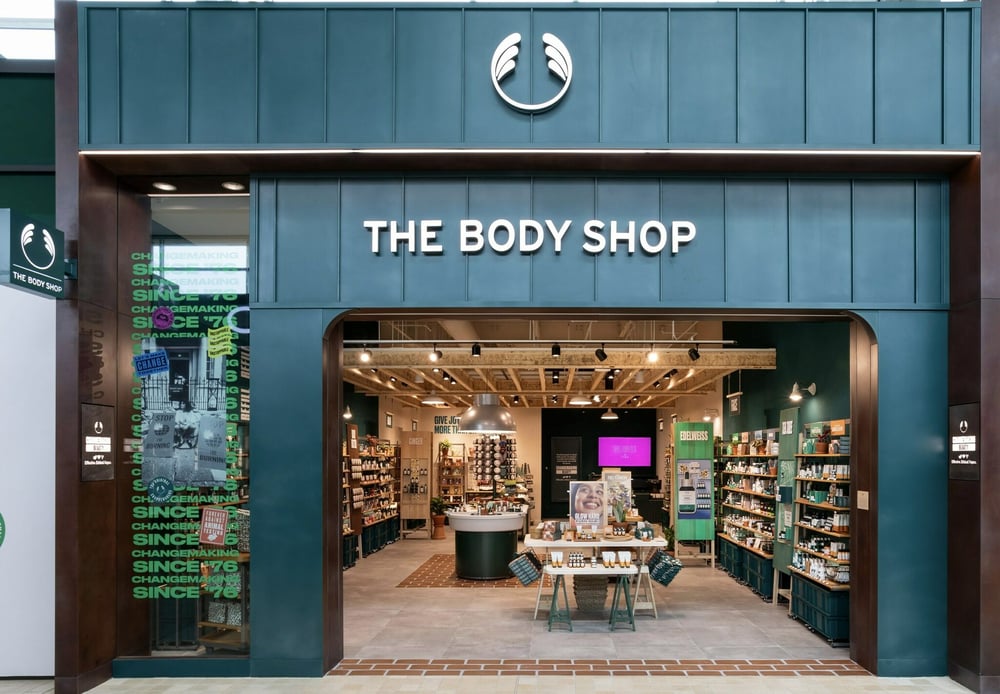The Body Shop is undergoing a makeover that is seeing it go back to its activist roots.
The retailer, which was a pioneer of both anti-animal testing and recyclable packaging since its inception in the 1970s, has been accused of losing its connection with the activist spirit that founder Dame Anita Roddick instilled across the business.
This has arguably made it less relevant to today’s consumers, which has taken its toll on sales of late. In its last quarter, sales plummeted 19.5% in constant currency due to what owner Natura called “continued challenges” at the chain.
The leader tasked with getting The Body Shop’s UK business back to its activist core and into growth is very much part of the beauty establishment.
UK managing director Maddie Smith joined the health and beauty retailer at the start of the year from Estee Lauder and has worked for the UK’s biggest beauty businesses including Boots, and Superdrug owner AS Watson.
She has wasted no time setting about her grand revamp. This has involved upgrading and improving its product range and a swathe of new store formats.
When Retail Gazette meets Smith at its new ‘Activist Workshop’ shop at Battersea Power Station, it’s clear how passionate she is about the stores.
“We’ve got a strong direct business, a strong online business, but the stores really are the heart of The Body Shop. It’s where we know the customer gets the ultimate experience.”
“Our stores are all little adverts all over the country telling our brand’s story.”
The new Activist Workshop store format combines The Body Shop’s activist heritage with a modernised interior, revamped products and an environment that shouts about the brand’s activist roots.
“The rollout has been going really well,” says Smith. “Without fail, all the stores that we’ve put into the Workshop concept are outperforming the non-Workshop stores – so customers like them.”
In fact, Natura reported that the new store format is achieving a 15 percentage point sales uplift against traditional stores.
This is a good news as The Body Shop has invested heavily in new stores in the UK, ploughing £7 million in the last few years.
The new stores are not just for shopping, they are for playing and experimenting too. Sinks have even been introduced to encourage shoppers to try out products from body scrubs to shower gels.
“People feel, touch and play with the products much, much better,” says Smith.
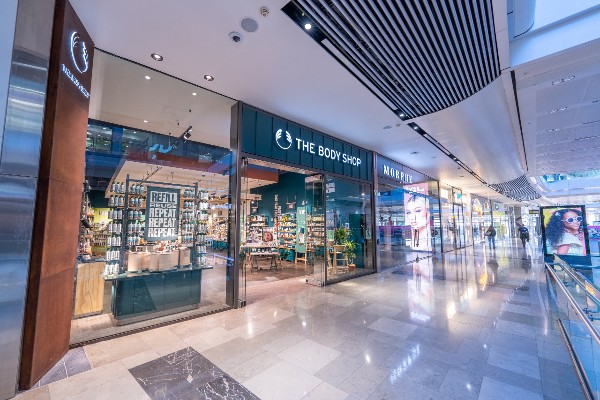
The Body Shop now has almost 40 Workshop stores and it plans to renovate amore next year – and even open new stores.
Smith says that footfall changes due to the working from home revolution has created new bricks-and-mortar opportunities for the business.
“That gives us opportunities around more locations and honestly, now that we’ve been through this amazing product rejuvenation, we’ve got some really great quality products that might enable us to go to some locations where perhaps in the past, we wouldn’t have been so successful,” she says.
Putting sustainability front and centre at The Body Shop again
As Smith says, The Body Shop’s products have been upgraded, both in terms of ingredients and packaging.
For example, its popular Drops of Youth range have been rebranded as Edelweiss, after its key ingredient, in a move away from the focus on age, while many of its products are now in 100% recycled plastic pots and bottles.
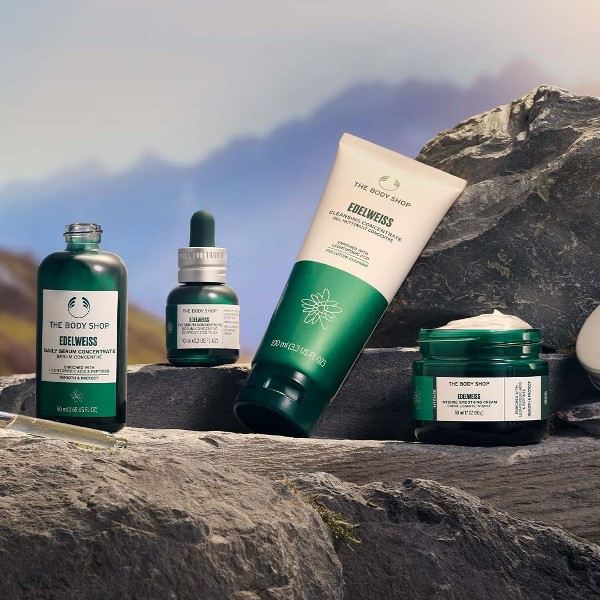
Sustainability has always been a part of The Body Shop’s ethos, however, despite its ongoing committment to this, it has not been as pioneering as it once was.
Many consumers felt that the retailer lost touch with its eco-roots when it was taken over by L’Oréal in 2006.
The deal, which was approved by founder Dame Anita Roddick the year before she died, shocked both Body Shop’s customers and staff given that she built the business to fight for what is good.
Roddick campaigned for survivors of domestic violence, began the businesses’ Community Fair Trade program working with marginalized groups, and pioneered anti-animal testing many decades ago.
However, after being acquired by Brazilian ethical cosmetics company Natura & Co for a reported $1.1 billion in 2017, The Body Shop is banging the drum harder on sustainability and is remind consumers exactly what makes the business so special.
The B Corp certified brand has put this at the heart of its new store format.
Refills are a big part of this and the Battersea store has a giant conveyor belts that delivers refillable products to the shop floor.
“Now in fairness, we put refills into the majority of our stores,” confesses Smith, who explains that in the Workshop stores they are “much more centre stage”.
Shoppers can buy a refillable 300ml 100% recycled bottle and fill it up with any of 12 of the brand’s popular shower gels, shampoos, conditioners and hand washes.
“The other big thing we’re excited about with the refill station is that it’s the same price as buying the regular products, but you get 50ml more. Then when you come back, you don’t have to repurchase the bottles. So it’s cheaper.”
“We’re giving consumers a win-win. They can help the planet and it’s great value for money. In this day and age, it’s really important.”
“We’ve now sold nearly 400,000 refills, which is saving eight tonnes of plastic. We’re anticipating that once we roll it out globally, by the end of next year, we’ll be saving about 25 tonnes of plastic a year.”
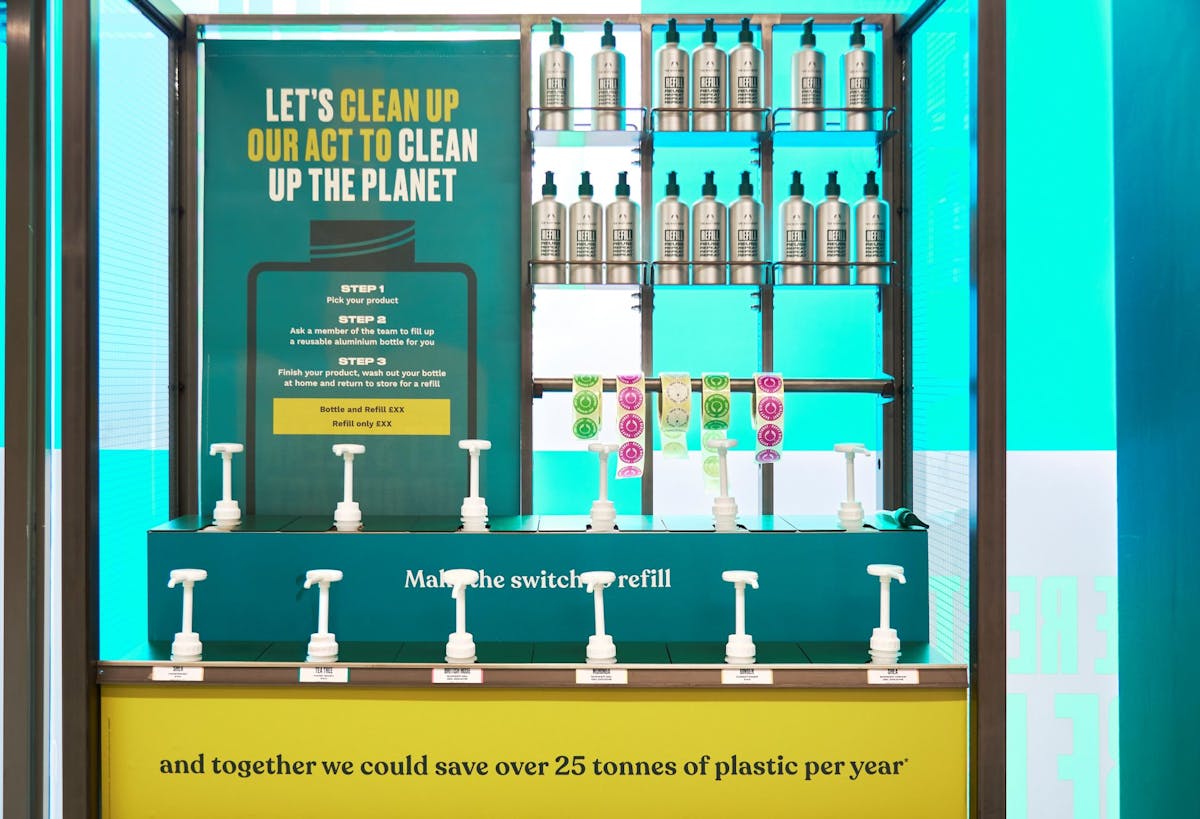
The business will have 172 UK stores with refill stations by the end of year, however, they are just one, very visual aspect, of The Body Shop’s sustainability efforts.
As we stand in the new Battersea store, Smith tells us that 90% of fixture materials in-store are sustainably sourced, including recycled plastics, responsibly sourced and reclaimed woods, re-purposed furniture pieces and sustainable powder coatings.
Pumped up staff
Customers aren’t the only ones excited about The Body Shop’s new stores. The Body Shop’s team are also geed up behind them.
“We made sure that our top people are in these stores. People are fighting to get involved,” says Smith, who adds that a number of store staff have relocated just because they want to be involved.
This includes Battersea manager Betsy, who has moved from Oxford to take up the role.
“You get that sense of pride from the people involved,” adds Smith.
She adds that its company-wide open hiring policy, which it has used to hire four team members at the Battersea store, has paid dividends.
Open hiring is a recruiting method where the first person to apply gets the job. First-in, first-hired.
In 2021 The Body Shop decided to use open hiring for UK roles, including at stores and distribution centres.
When a hiring manager is recruiting, they select the first candidate on the list for an in-person chat. During the chat, candidates are informed of open positions, company history, and roles and responsibilities.
From there, interested candidates are asked three simple questions to confirm they are eligible and able to fulfil the requirements of the role.
Discussing the retailer’s choice to use open hiring, Smith explains that it’s “really interesting, especially because there’s a war on talent at the moment”.
She adds that the team was inspired by Greystone Bakery in America, which uses open hiring for all their bakers in a bid to employ those in their neighbourhood that were in need of jobs.
“They started this process that if you want a job, you just have to answer three questions,” she explains. “If you could answer the questions correctly, when a job came up, the first person got the job.”
“Part of the thinking behind it is that that gets rid of bias discrimination.”
She says the recruitment process means that The Body Shop “gives people an opportunity who wouldn’t necessarily have an opportunity in retail”, as employers usually immediately want to know your experience.
“We’re bringing people into the business who perhaps come from disadvantaged backgrounds,” she says.

Adapting to the cost-of-living crisis
With inflation soaring to over 10%, shoppers are starting to feel the pinch. The Body Shop is doing all that it can to adapt to this tough environment.
Smith says that it strives to make sure all products are “accessibly priced”.
She admits that The Body Shop, like all retailers, is facing possible price increases in the near future, however, it is battling to keep prices low.
“We’re trying to be empathetic to customers in terms of what’s happening,” Smith adds. “Through this cost-of-living crisis we’re giving people great value.”
“And I guess the other big thing is a lot of customers aren’t prepared to trade off on values and we are a brand with a great sense of purpose with strong values.”
Smith also believes there is an opportunity for The Body Shop to win new customers as those that tend to buy more luxury health and beauty items trade down.
She says the retailer has upgraded the quality of its ingredients, textures and packaging to win this shopper in mind.
Trading in this climate won’t be easy for any business but by investing in its products, price and stores, The Body Shop is giving itself the best chance of emerging from the current crisis unscathed.
Click here to sign up to Retail Gazette‘s free daily email newsletter

